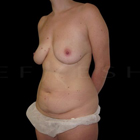You can’t move on the internet without wading through ‘life hacks’ these days, and while some of them work – or at least are worth sharing on Facebook – a lot of the medical-related ones leave us wincing.
Take teeth-whitening hacks, for example: while some of them appear to make sense at first glance, they all seem to crumble with a mere touch of fact. And in the worst cases, they can cause more harm than good. Let’s take a look at some of the most frequent ingredients in these home-made remedies, and examine what they really do…
Baking soda
This is probably the most popular hack ingredient, and it’s not difficult to understand why: after all, it’s in virtually every tooth-whitening toothpaste on the market, right? Problem is, high levels of unadulterated baking soda are incredibly abrasive on the enamel of your teeth, and if you’re a ‘hard’ scrubber, you can cause untold damage.
Lemon juice
A substance that has been used for centuries for getting out stains due to its high content of citric acid – but citric acid has been determined as one of the worst things you can subject your teeth to, and the lemon version of it is even more damaging than orange or grapefruit juice. Combined with baking soda, it’s an absolute nightmare for tooth enamel.
Oils
A recent trend for oil pulling – sloshing olive, sesame and even sunflower oil around the mouth for up to 20 minutes every day – has recently attracted attention online. Sadly, the only thing is has been proven to do is give you a very oily mouth.
So what does work?
Here at Refresh cosmetic surgery, we find that Liquid Smile is the best teeth-whitening solution on the market. Available only from dental and medical professionals, it’s a unique whitening pen that takes a mere minute to apply, is easy to use, and gets results within two weeks. Why not contact us for further details?















